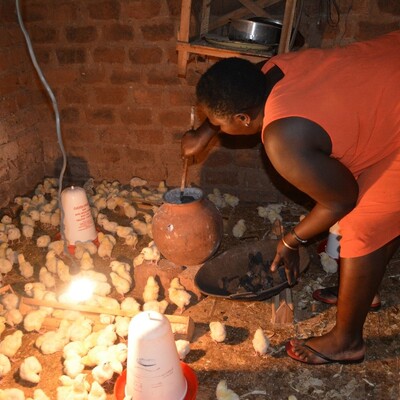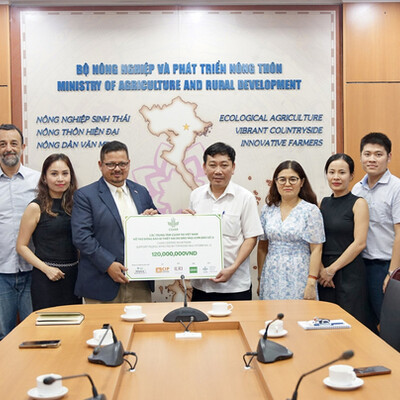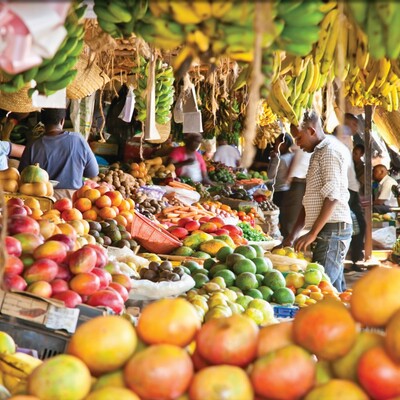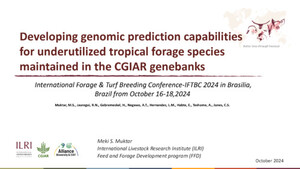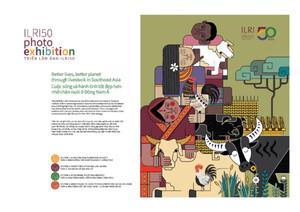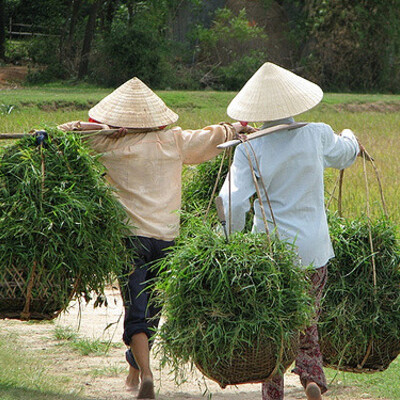
Program to support climate-smart livestock systems launched in Ethiopia
Agricultural development plays a key role in Ethiopia’s economy and is a major priority of the government for reducing poverty and achieving food security. The agricultural sector accounts for nearly 42% of the country’s gross domestic product (GDP) and over 80% of employment. The livestock sector in Ethiopia is one of the largest in Africa and contributes to 19% of the country’s GDP. The livestock sector not only provides protein-rich foods (such as milk, meat and eggs) and income for rural populations, but also presents opportunities for export of leather products to other parts of Africa, the Gulf and Europe.
Livestock production will continue to be significantly impacted by climate change and variability. Given the critical role of livestock production for economic development and food security in Ethiopia, the inclusion of this subsector in climate change strategies and targets is paramount. Ethiopia has included agriculture, and more specifically, livestock in its nationally determined contributions (NDCs) agreed to within the framework of the Paris Agreement. The country’s Climate Resilient Green Economy (CRGE) Strategy also highlights, ‘Improving crop and livestock production practices to increase food yields, hence food security and farmer income, while reducing emissions’, as one of its four pillars. In the agriculture sector, livestock production has the highest potential of reducing greenhouse gas (GHG) emissions.
On 27 March 2019, the Program for Climate-Smart Livestock Systems (PCSL) was launched in Ethiopia. The program will support interventions to increase the contribution of livestock production to the three key pillars of climate-smart agriculture (CSA): increased productivity, mitigation GHG emissions and adaptation to climate change, across diverse systems and species. It will support governments, the private sector and local stakeholders in realizing their development objectives while also fulfilling their commitments to achieve climate change adaptation and mitigation goals. The new project was well received by various stakeholders from government, research and civil society in Ethiopia who attended the launch meeting at the International Livestock Research Institute (ILRI) in Addis Ababa.

Participants in group discussions at the launch meeting (photo credit: ILRI/Sarah Kasyoka).
Ethiopia has made significant strides in setting up policies towards climate-smart livestock systems but there is need to learn more about animal feeding practices and manure management in the country and the new project will assess the issue by carrying out field research in the highlands and in the Afar Region (pastoral lowland side). The PCSL will take on an integrated three-pronged approach that aims to improve capacities of different stakeholders to implement interventions to support climate-smart livestock development:
- At the local level, ILRI will work with livestock keepers to identify and field test practices that are currently technically possible but need additional support to make them socially and economically feasible, such as the improvement of the quality of livestock feed.
- At the district and national level, ILRI will support line ministry staff, the private sector and civil society representatives to develop the appropriate enabling environment for implementing climate-smart livestock development. ILRI will also provide decision-making support through the participatory development of plausible future scenarios, particularly given the uncertainty about the future and the differing objectives of key decision makers in the context of climate change.
- Finally, ILRI will develop monitoring, reporting and verification (MRV) tools as well as baseline GHG emission data for addressing the mitigation agenda. In addition, adaptation tracking protocols will be developed to support the country’s reporting on progress towards their climate change adaptation targets. Tools will be developed in line with modalities, procedures and guidelines of the Enhanced Transparency Framework of the Paris and Katowice agreements.
Learning platforms for stakeholder engagement with regards to climate change and livestock will be a key component of this project. In Ethiopia, there is a clear sense of the key actors but not yet a regular group that meets for discussion. Potential participants of these learning platforms will include individuals with relevant livestock expertise, value chain actors and private sector partners. ILRI will support the groups with regular meetings and learning activities to encourage their sustainability. These working groups will discuss, refine and share project results such as proven best practices, protocols for monitoring and reporting, and tools for identifying adaptation pathways. The groups will be supported with appropriate communication and capacity development activities.
Field visits in Debre Birhan
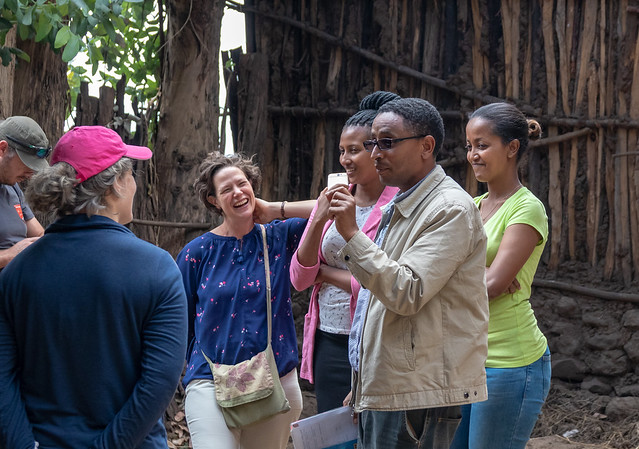
The PCSL project team during the field visit to Debre Birhan (photo credit: ILRI/Sonja Leitner).
Prior to the launch of the meeting, some team members who will be involved in the implementation of the PCSL, participated in field visits to familiarize themselves with the farming systems in Ethiopia. The team visited Debre Birhan Agricultural Research Centre, which is about a two-hour drive from Addis Ababa and farms where the Africa RISING project is being implemented. The team was able to tour some plant nutrition and soil labs at the research centre. These field visits gave the team an opportunity to observe normal farming practices in this area and ongoing trials and innovations being implemented through Africa RISING. Since PCSL aims to develop climate-smart agricultural practices and strategies for mitigation and adaptation, visiting these farms gave the team members some initial insights regarding plans to run GHG emissions trials.
Debre Birhan will be an interesting area in which to work. The sample frame for PCSL will include areas in and outside of the villages where Africa RISING has implemented its project interventions. The team visited one farm where there have been no interventions and observed farming practices such as manure management and animal feeding techniques as well various animal breeds.
During the field visits, the team also observed a close connection between crop and livestock farming with some farmers using manure management techniques while also using bought fertilizer. Households in this area use dried manure for cooking. The team observed that lucerne fodder trees were used for animal nutrition. These leguminous trees have nitrogen-fixing properties, are drought resistant and reduce soil erosion.
These farms present potential for investigating the relationship between the agricultural ecosystem and animal nutrition in the area. Scarcity of water for livestock production and limited time to implement technologies were some of the challenges observed regarding the uptake of some agricultural intensification practices. These challenges mostly affected women. Though this initial visit gave the team valuable insights into farming practices that will inform the implementation of the project, a larger sample size of farms will be required to get a broader understanding of adaptation practices and the differences between the farmers who are taking up various technologies and those who are not. It will also be helpful to understand why some farmers have been successful in implementing these practices, while others have failed to do so under similar conditions.

Cattle dung is formed into flat cakes that are laid out in the sun to dry for use as fuel for cooking (photo credit: ILRI/Sonja Leitner).
The Climate-Smart Livestock Systems program activities are implemented by ILRI in partnership with the World Bank and focus on the combination of scientific data collection and solution-led field research on climate-smart livestock production. The program is funded and coordinated by the German Corporation for International Cooperation GmbH (GIZ). It will also be implemented in Kenya and Uganda and runs from 2018 to 2022.
Read about the launch of the project in Kenya








